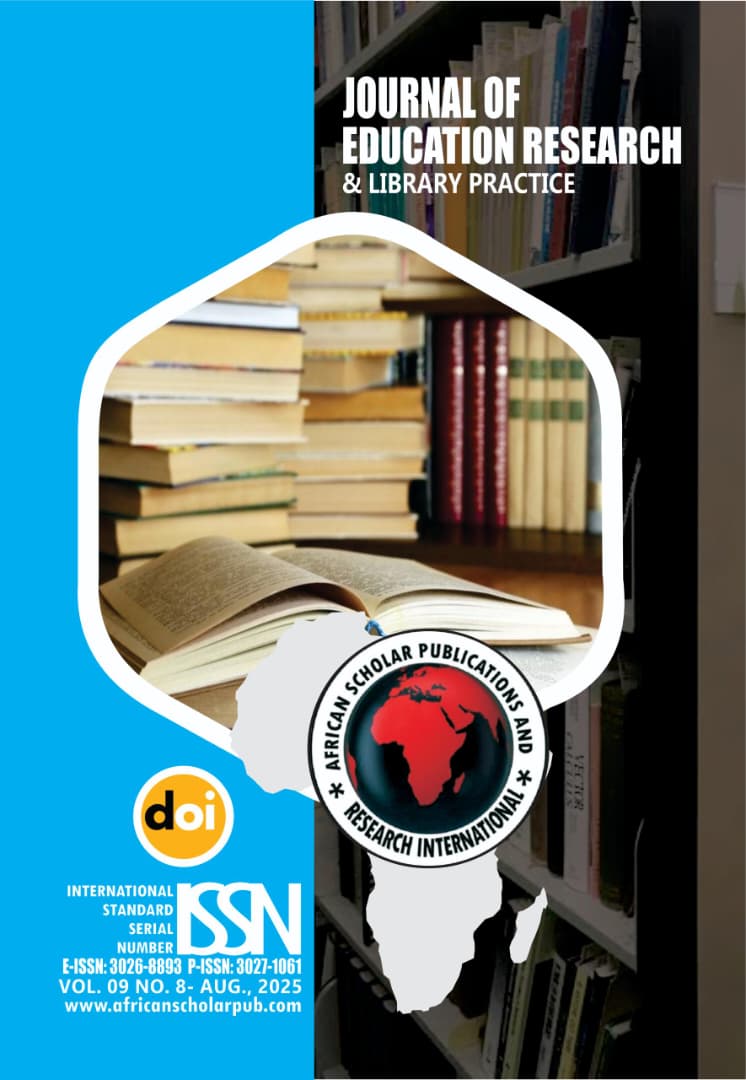Gender Effect of Indigenous Counselling Therapy on Mental, Moral and Physical Health of Internally Displaced Persons in Taraba State, Nigeria
Abstract
The effects of indigenous counselling therapy on mental, moral, and physical health of internally displaced persons based on gender in Taraba State, Nigeria, was examined in this study. In accordance with the research question and hypothesis, one objective was formulated. Pretest-posttest was used in a quasi-experimental design. There were 67,032 internally displaced people (IDPs) in Taraba State, Nigeria, who made up the study's population. Purposive sampling was used to choose 60 IDPs with mental, moral, and physical health concerns for the research. The Mental, Moral, and Physical Health Questionnaire (MMPHQ), which has a reliability value of 0.94, is the instrument used to gather data. The instrument was administered during the pretest and posttest in order to gather data. Descriptive statistics of mean and standard deviation, whereas hypothesis, was tested using analysis of covariance (ANCOVA) at the 0.05 level of significance. The study concludes that Both male and female IDPs may benefit equally from these treatments, as evidenced by the lack of discernible gender disparities in their efficacy. Thus, Gender difference does not significantly influence the effect of indigenous counselling therapy on mental, moral and physical health of internally displaced persons in Taraba State, Nigeria. The results showed that indigenous counselling therapy had no discernible effect on the mental, moral, or physical health of IDPs according to their gender. Among other things, the study suggested that Counsellors should adapt indigenous counselling approaches to address gender-specific needs and challenges, ensuring inclusiveness in therapeutic delivery.
Keywords:
Gender, Indigenous Counselling Therapy, Mental, Moral, Physical Health, Internally Displaced PersonsDownloads
Downloads
ACCESSES
Published
Issue
Section
License
Copyright (c) 2025 Menchak, Clifford Yubsih, Godwin, Augustina, Bako, Salama, Gani, Isreal Philip, Zubairu, Mairama (Author)

This work is licensed under a Creative Commons Attribution 4.0 International License.


















